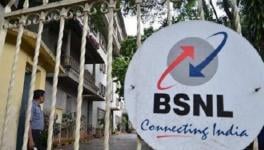Raja Must Quit
The telecom spectrum scam is now back in the news with CBI raiding the Department of Telecom (DoT), reportedly at the request of the Central Vigilance Commission (CVC). The CVC had earlier written to the Department of Telecom on this issue and had made clear that it was not satisfied at the explanation given by DoT. Should Mr. Raja, the Minister continue to be in charge when such serious allegations have been levelled against him and a CBI investigations is in progress?
Spectrum sale in 2007 with 2001 prices
To recapitulate the spectrum issue, the all India license and the spectrum for additional cellular operators (2G operators) was given away on a first-come-first-served basis at 2001 prices. TRAI, experts within and outside the Government, had all stated then that there was no justification for using 2001 prices when there were barely 4 million mobile subscribers as against 300 million subscribers in 2007.
The sale of license was not limited to first-come-first-served parties only. The CDMA operators were also given GSM licenses at the same 2001 prices. And when the GSM operators made a lot of noise, Raja “magnanimously” allowed them to continue to hog spectrum beyond the original amount. All in all, all parties in telecom – old ones and new ones were gifted scarce natural resource – the spectrum – at throw-away prices.
Soon after this sale, the parties – new telecom operators -- who had secured the licenses sold it at about 6-7 times the price they had paid without doing any development at all. The difference between what the companies paid -- a total of Rs. 9,000 crore -- and what the market price of these licenses were -- anything between Rs. 60,000 to 100,000 crore -- is the scam, making it by far the biggest scam ever in this country.
Who were the companies that benefited from this award of licenses?
here were nine corporate entities who secured 120 licenses, which benefited from this under-valuation of the license fees -- Unitech Builders, Venugopal Dhoot’s Videocon, Swan Telecom, Loop Telecom (reportedly owned by Ruias), S Tel, an unknown company owned by a shadowy entity Telecom Investments (Mauritius) Ltd and older players such as Shyam Telelink,, Idea Cellular, Spice and Tatas. Only a few of these were telecom companies or had any real interest in telecom.
The deals struck soon after between UAE’s telecom operator Etisalat and Swan Telecom, and that between Unitech and Talenor (of Norway), brought out the magnitude of the under-valuation. Swan Telecom sold 45% of its stake to Etisalat for $900 million, taking its book value to $ 2 billion (Rs. 10,000 crore). This is without putting up any infrastructure, let alone actually starting operations. The Unitech-Talenor (of Norway) deal was no different: it sold 60 per cent of its stake to Talenor for Rs. 6,120 crores while paying only Rs. 1,651 crore as license fee. Thus, the new entrants secured licenses for Rs. 1,651 that were being valued in excess of Rs. 10,000 crore by the market within a few months of their securing the licenses!
Defending the indefensible
A Raja, the Minister concerned, has provided two defences of his actions that has lead to this huge loss to the exchequer. One is the argument that he had no alternative since first-come-first-served principle was followed by all his predecessors. The second argument is that the license fee of Rs. 1,651 crore was fixed by TRAI, a contention that TRAI has denied right through.
The Minister has referred to National Telecom Policy (NTP) 99 and the TRAI recommendations of 2003 to justify his first-come-first-served principle. The simple fact is that after NTP 99, there was an auction in 2001 for the 4th GSM license and therefore referring to NTP 99 for justifying this principle does not hold water. In fact, the DoT had referred this matter to TRAI and TRAI had recommended in June 23, 2000 that a multi-stage bidding process be followed with auctioning for the license fee, which is what was finally followed. Secondly, the 2003 TRAI recommendations regarding first-come-first-served principle that Raja talks about, referred to those parties who had secured licenses and were awaiting spectrum and not to issuance of new licenses. So giving spectrum on a first-come-first-served basis to parties that have already secured licenses is quite different from that of award of new licenses and spectrum on a first-come-first-served basis.
The then TRAI Chairman Nripen Mishra had had rebutted the Minister’s claim that TRAI had recommended first-come-first-served with 2001 prices for the 4th cellular operator and clarified their recommendations had asked that new entrants be brought in through a multi stage bidding process. TRAI’s recommendations -- “Review of License Terms and Conditions and Number of Access Providers” -- dated August 28, 2008, in para 2.73, clearly states:
The allocation of spectrum is after the payment of entry fee and the grant of license. The entry fee as it exists today is in fact price discovered through a market based mechanism applicable for the grant to the 4th cellular operator. In today’s dynamism and unprecedented growth of the telecom sector, the entry fee determined then is not the realistic price for obtaining a license.
On both counts then, Raja’s defence that he was merely following what TRAI had told him or earlier ministers had done bears little credibility.
But this is not all. There was a detailed note prepared in 2007 by the Secretary Telecom, DS Mathur, which had evaluated three options regarding award of licenses. It had considered first-come-first-served with 2001 license fee, and two different ways of auctioning the licenses/spectrum. The Note also made clear that the first-come-first-served basis with an old license fee was not the best way of giving out licenses. It is interesting to note that as long as DS Mathur was the Secretary, no licenses were issued and only after his retirement in December 2007, were the new licenses issued.
Raja has also made another claim in his defence. This is that he broke the cartel of telecom operators and the earlier Ministers had caused a loss of Rs.160,000 crore by giving away spectrum to this cartel. If Raja has indeed broken the cartel, then the consumer should have seen their telecom bills drop. This has not happened. At best what Raja has achieved is that he has enlarged the earlier telecom cartel with his favourite companies.
If we take both his claims together – that the earlier Ministers gifted away spectrum and he was merely following the precedence set by them – then it means that since the earlier Ministers gifted away Rs. 160,000 crore to the cartel, he also therefore had the right to follow in their footsteps and gift away spectrum to others. If he knew that the earlier Ministers had been gifting away spectrum wrongly, why had he not asked the Government to file charge-sheets against them and the then Telecom officials? In what way can earlier wrongdoings be a defence for him?
The other element of the scam is the license terms and conditions. If there was indeed a genuine desire to keep license fees low and thereby benefit the ultimate customer, there should have been strict clauses locking-in share-holding and sale of licenses. Not only was this not done, the Merger and Acquisition Guidelines issued by DoT on 22nd April, 2008 superseding its earlier guidelines, deliberately omitted all mention of Acquisitions and only talked of Mergers. Without any lock-in measures, the gross undervaluation of the spectrum could only lead to windfall profits for the new licensees.
Even after the scam had come to light, the UPA Government had made no move to stop this open loot of the public exchequer. The left parties had demanded a set of immediate measures by which licenses given at such low prices should be locked-in for a specified period and had also asked that windfall tax to be levied on all such sale of licenses. On both these counts, the UPA Government then took the position that this was a corporate issue and the Government had no role to play, never mind the fact that they were the ones who had issued licenses at such ridiculously low prices.
It is time that the Minister concerned and the Government take note that their defence on the spectrum issue has no takers. Raja must go if this Government is even half-way serious of addressing the issue of probity in public life.
Get the latest reports & analysis with people's perspective on Protests, movements & deep analytical videos, discussions of the current affairs in your Telegram app. Subscribe to NewsClick's Telegram channel & get Real-Time updates on stories, as they get published on our website.
























